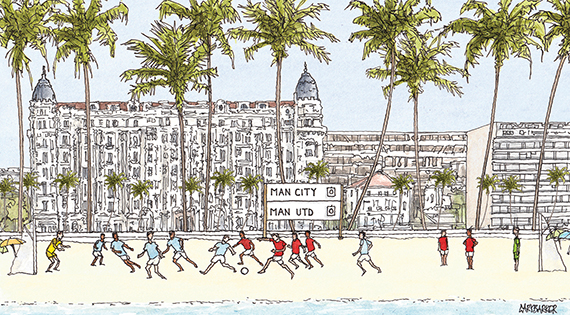Private-public partnerships have long been at the heart of Manchester’s approach, and there is no better annual illustration of this than the city’s MIPIM delegation.
We have been attending the event for more than 15 years, during which time we have developed a distinctive approach. This year around 100 organisations, a record number, have joined forces to beat the drum for development opportunities in the city.
Most delegates are from the private sector, but these partners want the council to be represented at a senior level to help communicate the shared investment and development aspirations for the region. That is why I have been there, along with colleagues from other Greater Manchester local authorities. We have a shared understanding of Manchester’s strengths and our role as place-shapers and speak with a single voice.
Whatever your views on the northern powerhouse concept, it has caught the international imagination and is a useful platform for us to extol everything the city has to offer.
Other developments, from devolution to the city’s status as 2016 European City of Science, are contributing to the sense that Manchester is one to watch.
Investment in transport infrastructure – a £1bn package of improvements in the city centre, for example – and the cultural ecosystem, such as the Factory arts venue, are adding to the momentum which has seen Manchester emerge as the UK’s most attractive regional real estate market.
This year we have been showcasing some exciting developments, including St John’s (at the former ITV Granada site) and Circle Square (at the former BBC site). The Manchester Life housing development in east Manchester and St Michael’s, another prime city centre site, are among the headlines.
This month witnessed another significant leap in Manchester’s increasingly important creative and digital sector. Manchester City Council confirmed funding which will enable the Space project in east Manchester – the purpose-built film and TV production stage complex – to double in size by 2017.
Proposals include the construction of nearly 90,000 sq ft of new buildings for production activities, including a 30,000 sq ft stage, more
than 6,000 sq ft of offices and green rooms, 10,000 sq ft for set construction workshops and a 40,000 sq ft business unit to support the TV production supply chain across the 17-acre site.
The expansion of the Space project will satisfy UK demand for TV and film production stages as well as supporting supply chain businesses, which will help grow the sector and allow Manchester to develop its already prominent position in the UK for media production. It will also create 275 jobs and help boost the local economy by nearly £10m a year, supporting the regeneration of east Manchester.
The Space project opened in October 2014 and supported the creation of around 250 new jobs in its first year. The neighbouring Armstrong Mill complex, which was bought by the council in 2014, will be incorporated in the boundary of the existing project. A planning application is due to be submitted next month.
You might say it’s one giant leap for Manchester.
Sir Howard Bernstein, is chief executive, Manchester City Council












